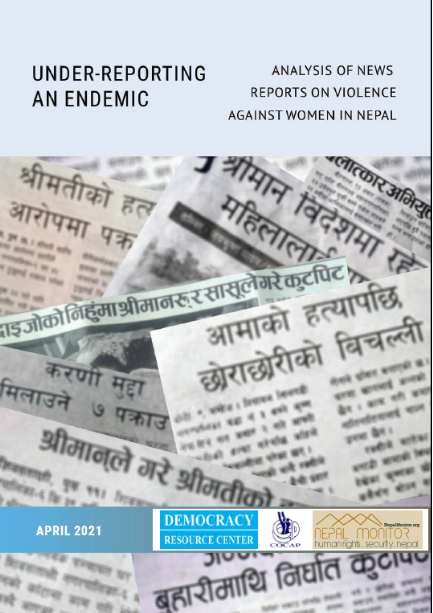It has been quite evident with the ongoing events related to the rape and murder of Nirmala Panta that there were critical lapses at every stage of police investigation from day one. Nirmala, 13, was raped and then murdered in cold blood on July 26.
Since then, Nirmala’s parents, the whole of Kanchanpur, as well as people across the country have been demanding justice for the girl. They approached police for a fair investigation, but to no avail. Nothing has come out of it as of now despite the plea of Nirmala’s parents, protests carried out by the locals of her hometown, and the entire nation marching every week to draw authorities’ attention to the state of impunity and bungling in investigation.
I had gone to Kanchanpur to take stock of what had actually happened. I came across various revelations that point to major slips in police investigation. On the day Nirmala went missing, her mother had gone to the police station and requested security personnel to find her. Police asked her to come back the next day with a photograph. This clearly shows that police did not take the issue of a missing girl seriously.
Nirmala’s parents and neighbours had asked police to check Bam sisters’ (Roshani Bam and Babita Bam) residence as Nirmala had gone there to study the day she went missing. But police didn’t oblige to this request. This created enough room to wipe out any evidence from the place if there were any.
Finally, when crowds started to gather at their house, police briefly went inside. According to Nirmala’s father, one of the rooms was locked, but police did not even look inside it. The father asked police to request the Bam sisters to unlock the door, but once again it was ignored.
The elder of the Bam sisters had made a very suspicious comment that “Nirmala’s body must be in the field” even before the knowledge of her death. Ignoring the gravity of the comment, police did not consider the sisters as persons of interest and instead started interrogating another girl. According to Nirmala’s father, while interrogating this completely unrelated person, police tied her upside down by her feet and beat her mercilessly on August 6 (Day 12 since the body was found in a sugarcane field).
Most shocking of the lapses was that Nirmala’s private part was washed when her body was found — even before the investigation had begun. Likewise, her clothes were dipped in water by police, in a complete breach of basic protocol of an investigation that there should be no tampering with evidence.
According to police, Nirmala’s vaginal swab was collected. But before the investigation could properly begin, her body was cremated, which left no source for verification to even compare if the swab was collected from Nirmala’s body. What makes the matter more questionable is that the swab was tested at a police lab, creating a conflict of interest. DNA test of rest of the people in question was conducted at National Forensic Science Laboratory, Khumaltar.
Nirmala’s parents shared that they were pressurised to cremate the body along with all her clothes when the standard procedure of police should/would have been to preserve the body and invite forensic experts, or the body should have been sent to the Kathmandu-based forensic lab.
As per the report submitted to the Home Ministry by a special investigation committee, the thumb print of Nirmala’s father was forged, as he had returned from India on August 12 whereas his thumb print was obtained a day before — on August 11. Similarly, without adequate proof, police presented a fake suspect. A 41-year-old local was arrested and paraded as the culprit. The Central Investigation Bureau also claimed that the man, who was known to have intellectual disability, was the perpetrator. There was no evidence to support the claim.
But Kanchanpur rejected this claim. Locals demanded that police either provide strong evidence or bring the real culprit to book. Protests ensued, in which yet another minor, 14-year-old Sunny Khuna, lost his life in police firing.
As stated in the report submitted to Home Ministry by the high-level probe committee, Kanchanpur Chief District Officer had asked SP Dilli Raj Bista not to open fire. There was no permission whatsoever to open fire at the protesters. SP Bista could not be contacted by the phone at that time.
Since police did not interrogate Bam sisters and those in their close circle within the expected time, they also failed to protect cameras and evidence from Hotel Opera where, it was learnt later, SP Bista’s son was celebrating his birthday on the night Nirmala went missing. Police also failed to protect evidence from cameras in the municipality.
Lastly, it is also important to note that Birendra KC, under-secretary at the Ministry of Internal Affairs and Law of Province 7 and a member of the high-level investigation committee, resigned from the committee, doubting the credibility of the report prepared by the committee. He said that police did not cooperate in providing necessary details regarding the case to them.
It has been over 70 days, but there is no valid response from the authorities as we continue to ask “Who killed Nirmala?” We wonder if the police administration is trying to manufacture its own answer: “No one killed Nirmala”.
Sherpa is an epidemiologist and a rights activist.


_001.png)




